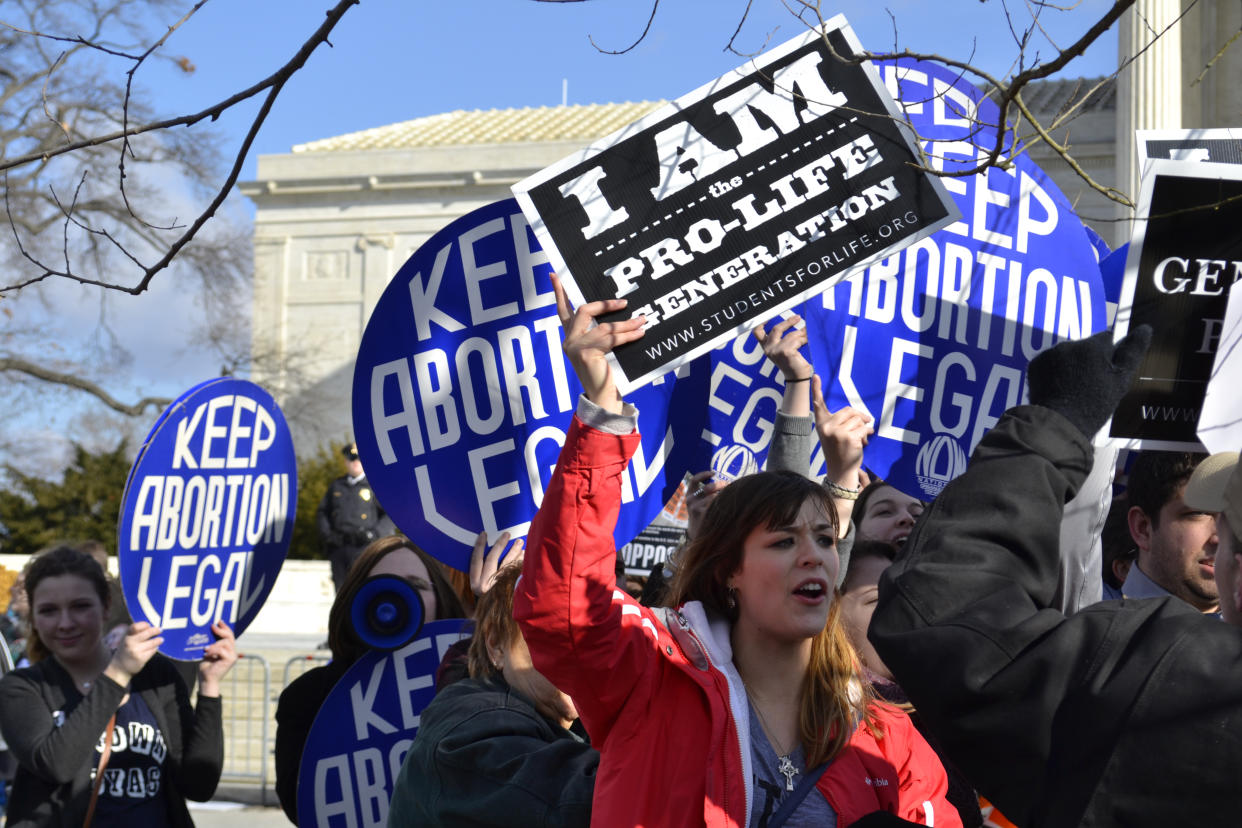Most women feel relief and happiness after having an abortion, study finds

It’s a commonly held belief among anti-abortion advocates that women who choose to terminate a pregnancy are likely to suffer from depression, anxiety and regret. But a new study from researchers at the University of California San Francisco (UCSF) suggests this narrative may be flawed.
Published in the journal Social Science and Medicine, the study originated with UCSF’s research group, Advancing New Standards in Reproductive Health (ANSIRH), a branch of the university that aims to unpack the “complex issues” surrounding women’s reproductive health.
For this particular project, the researchers used data from the Turnaway Study, a large-scale survey of 1,000 women from abortion clinics nationwide, zeroing in on the emotions women reported feeling in the aftermath of their abortion. All 667 women — hailing from 20 different states — were asked to share their emotions one week after terminating their pregnancy, then again every six months for a total of five years.
Immediately after their abortions, over 95 percent of women said they had made the right decision — a number that increased to 99 percent at the five-year mark.
Aside from extremely low levels of regret, few women expressed additional negative feelings, such as anger, guilt or sadness. One week after the abortion, 51 percent of women reported feeling mostly positive emotions (relief and happiness), while another 20 percent reported feeling few negative emotions or none at all. After five years, 84 percent of women reported experiencing either all positive emotions or no emotions, while just six percent of those polled reported primarily negative emotions.
Overall, the researchers found that high-intensity emotions about the decision to terminate — even negative ones — sharply declined over time. More than half of the respondents, for example, reported that making the decision to get an abortion was “very or somewhat difficult.” This group reported higher levels of negative emotions immediately after the procedure than those who did not find the decision difficult. But over the course of five years, this same group showed a sharp decline in negative emotions, eventually paralleling the positive emotions of women who more easily chose that path.
"Even if they had difficulty making the decision initially, or if they felt their community would not approve, our research shows that the overwhelming majority of women who obtain abortions continue to believe it was the right decision," Corinne Rocca, PhD, lead author of the study and associate professor at UCSF’s department of obstetrics, gynecology and reproductive sciences, said in a statement. "This debunks the idea that most women suffer emotionally from having an abortion."
The research aligns with earlier studies on the topic, which similarly have found either little or “no evidence” that abortions fuel mental health issues. One study, published in 2013, analyzed women who either terminated their pregnancy at or near the gestational age limit — meaning how far along the pregnancy is — or were denied an abortion because of advanced gestational age. (Most abortions in the U.S. are performed before 21 weeks).
Those who were denied an abortion reported higher levels of regret and anger than the group who went through with the abortion, and lower levels of relief and happiness. Overall, 95 percent of the women who ended up terminating their pregnancy said it was the right decision.
In the aftermath of the new study, advocates on both sides of the debate are weighing in on the results.
Olivia Gans Turner, director of American Victims of Abortion, disputes the findings, saying that the research doesn’t extend far enough. “The study seems to indicate that after five years we don't have any problems so that makes it's OK — if you can just hang in there it'll be OK,” Turner tells Yahoo Lifestyle. “The reality is we don't often see individuals seeking assistance or connection for 10 years or more.”
President of the anti-abortion group Concerned Women for America, Penny Nance, agrees, saying she has anecdotal evidence that disputes the idea that most women are relieved. “This is completely contrary to what those recovering from abortion tell us,” Nance tells Yahoo Lifestyle, adding that the organization recently put out a podcast about women who regret having their abortions — which she says is meant to help others.
Pro-choice groups, however, are backing the research — suggesting that it’s more reason for women to have control of their rights. “Ultimately, no one can know the best decision for a woman without walking in her shoes,” a spokesperson for NARAL Pro-Choice America tells Yahoo Lifestyle. “What this study reinforces is that women, not politicians with extreme agendas, should be making these critical decisions.”
Planned Parenthood Action, the political advocacy arm of Planned Parenthood, seems to agree. In tweet posted on Monday, the group wrote: “These new study results confirm what we already knew: politicians must stay OUT of the exam room.”
Read more from Yahoo Lifestyle:
The internet goes crazy after Leana Wen ousted from Planned Parenthood: ‘This is a monumental loss’
Every Senate vote for Alabama's abortion ban was from a white man
Follow us on Instagram, Facebook and Twitter for nonstop inspiration delivered fresh to your feed, every day.

